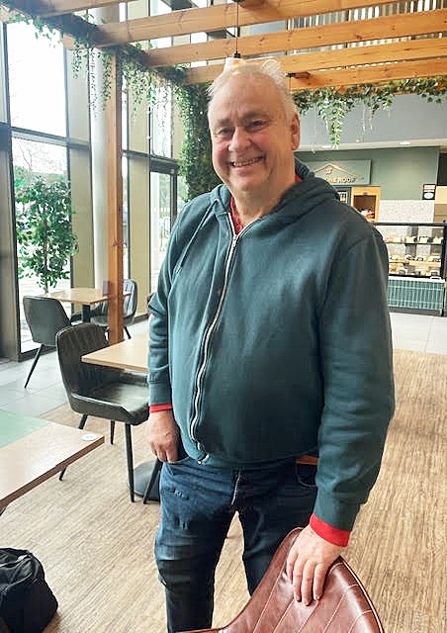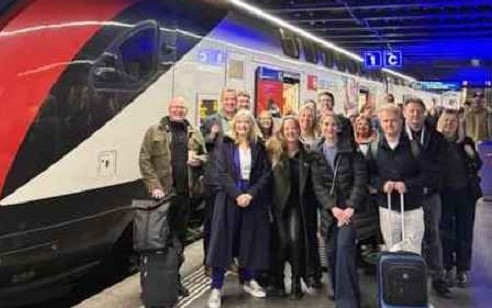Siemens is one of the UK's leading apprenticeship employers and this year will reach the milestone of 500 apprentices on its longstanding programme. As a major engineering employer in the UK, with around 14,000 employees, there is little doubt that apprenticeships deliver value for Siemens
Siemens has created 120 places this year across its nine business divisions. Taking the total number of apprentices to 500, which is the highest number to date, compared to 80 apprentices in 2008. Virtually all apprentices go on to secure roles in the business.
In the UK, Siemens manufactures products such as industrial gas turbines, traffic lights, superconducting magnets for MRI scanners, high efficiency motor drives and train radios, as well as designing, maintaining and operating solutions in many other industries.
Commenting on the value of apprenticeships, Siemens HR Director, Toby Peyton-Jones, said:
“Siemens was founded in the UK over 170 years ago with a pioneering spirit and is today still regarded as one of the UK's top engineering firms and apprenticeship employers. We have a longstanding and highly successful apprenticeship scheme, which is integral to our approach to training and developing our engineers and leaders of the future. Apprenticeships truly deliver results – for the employer, for the apprentice and above all for the economy and society as part of overall industrial strategy to provide well-trained and industry-ready employees.”
Siemens is committed to developing the engineering skills for a sustainable UK manufacturing sector as one of the leading providers of engineering apprenticeships in the UK.
Martin Hottass, Manager, Skills & Siemens Professional Education, said:
“We have a strong commitment to contribute to the educational landscape in Britain. We see a role for business to work together with the public sector to help build a skills pipeline for UK industry.
“We invest in this as the UK is an industrial powerhouse with a looming threat of a dire skills shortage as our older workers with valuable knowledge and technical expertise come up to retirement age. We do not see enough people coming through to replace them. Cultivating new engineers is more important than ever in the current economic climate and Siemens continues to invest in skills and life-long training.”
These much prized places include opportunities across the business including wind power, power & gas and rail, which will see a new National Training Academy for Rail (NTAR) open at the Siemens site in Northampton in the autumn.
Helping to keep South West Trains, one of the largest passenger operating franchises in the UK, on track are; Jay Kenway, Deputy Supervisor, and Ashley Newman, Performance Engineer, who are both former apprentices.
Jay Kenway, said:
“I've progressed from an apprentice to a Deputy Supervisor in the Production team. We're responsible for the efficient and safe delivery of 162 trains into service every day, which is quite a responsibility!
“Every day is different, and dealing with whatever turns up means thinking on my feet. As a Deputy Supervisor on one of the five shifts, night work was tough at first, but I wouldn't swap it for a nine-to-five job now.”
Ashley Newman, said:
“I've recently completed an apprenticeship and am now based in the Performance Team, where we collect and analyse real-time data to detect train faults, implement improvements and ensure that high standards are met. Fault finding, problem solving and getting good customer feedback is rewarding. There are also great progression opportunities, with lots of experienced engineers to learn from.”
Siemens and other engineering firms are all acutely aware of the challenges faced by the profession in attracting new employees into the industry. Siemens recently launched the Curiosity Project, a three-year engagement programme which broadens existing investment to bring science, technology, engineering and mathematics (STEM) to life in the UK. As part of the Curiosity Project, Siemens will support five major science and related festivals throughout the UK, each with a clear ambition to reach out to parents, teachers and students to make the world of science available in a fun and engaging way. This also encompasses the Siemens Education Portal which allows teachers, students and parents to access a central hub of engineering information.
Siemens is pushing ahead with other vocational initiatives too, with the addition of two new University Technical Colleges in Lincoln and Sheffield to its existing UTC portfolio. Siemens also plays an integral role as one of six major UK engineering employers in the Talent Retention Solution, an employer-led initiative designed to attract retain and develop people and engineering skills that may otherwise be lost to the economy.
Toby Peyton-Jones added:
“It would be hard to find an employer more committed than Siemens to nurturing engineering skills – across the board from schools, to colleges to universities, we are getting involved, investing and demonstrating the value of an employer-led collaborative approach to meet the needs of the future economy.”
Sir William Siemens himself, who founded Siemens in the UK more than 170 years ago, progressed from the shop floor to the top floor, having started his career as an apprentice.
















